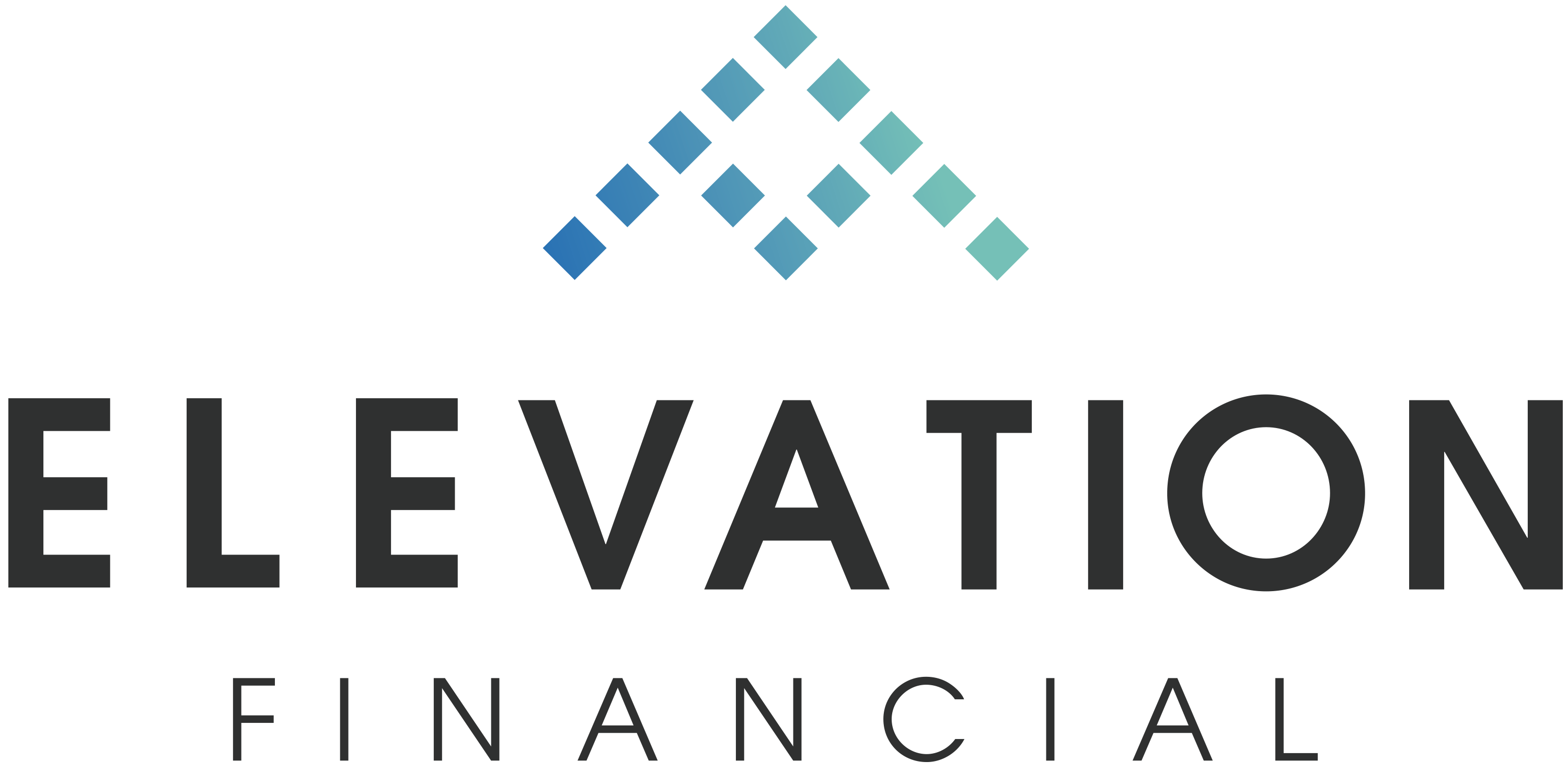
Share this Post

Need help with your money or investments? Book a consultation to learn more about working together.
How Decluttering Your Finances Can Improve Your Life
[Prefer to listen? You can find a podcast version of this article here: E266: How Decluttering Your Finances Can Improve Your Life]
A cluttered financial life is rarely just about disorganization. More often, it's a silent source of stress that hovers beneath the surface, affecting everything from your decision-making and emotional health to your ability to achieve financial goals.
In a world increasingly defined by digital subscriptions, multiple bank accounts, and an abundance of tools and platforms, financial clutter is more common than ever.
But when you take the time to simplify and streamline your financial ecosystem, you’ll likely find more than just money. You can find clarity, calm, and confidence.
What Is Financial Clutter?
Financial clutter can take many forms, both physical and digital:
- Old, unused bank accounts and multiple credit cards
- Forgotten 401(k)s or IRAs from past employers
- Subscriptions that continue to bill long after you’ve stopped using them
- A drawer full of unopened statements or a cloud drive packed with unorganized financial documents
- A fragmented approach to budgeting, with several apps or spreadsheets that don’t communicate with each other
On its own, any one of these may seem harmless. But together, they create a maze that's hard to navigate, leading to missed payments, financial leakage, and a persistent feeling of being out of control.
The Hidden Costs of Financial Clutter
You may not feel the impact of financial clutter right away, but its costs are very real, and they go beyond wasted money.
Subscription Waste
In a 2022 survey by C&R Research, 74% of respondents said it was easy to forget about recurring subscriptions, and 42% had stopped using a subscription but forgot to cancel. Americans spend an average of $273 per month on subscription services, and more than two-thirds underestimate how much they’re actually spending by around $133 per month.
That’s over $1,500 per year in potential waste.
Missed Opportunities and Fees
Financial clutter can result in missed credit card payments (leading to late fees and interest), overdraft charges, and even inactivity fees on dormant accounts. Worse, neglected investment accounts might be languishing in high-fee mutual funds or low-yield money market funds, missing the opportunity to grow.
The Psychological Toll of Financial Disorganization
While the financial loss is tangible, the emotional cost is often just as problematic.
Stress and Decision Fatigue
Research published in Psychology Today found a strong link between clutter and increased levels of cortisol, the stress hormone. This applies to finances, too. When your accounts, subscriptions, and tools are disorganized, every small financial task becomes more complicated than it needs to be, leading to procrastination and decision fatigue.
Every login, every search for a document, every “Where did I put that?” is another drop in your stress bucket.
Avoidance Behaviors
Over time, people with cluttered finances often develop avoidance behaviors. Bills go unopened. Budgeting is skipped. Investment accounts are left unreviewed. The result is a cycle of guilt and stress that reinforces inaction.
And for many, cluttered finances can trigger deeper emotional patterns tied to fear, shame, or a scarcity mindset, especially for those with past financial trauma.
Why Decluttering Your Finances Matters
Decluttering your finances isn’t just about tidiness. It’s about freedom.
1. Clarity and Focus
When you streamline your accounts and subscriptions, it becomes easier to see where your money is going and to direct it with purpose. You're no longer spending mental energy tracking down balances or wondering which bill is due next.
2. Better Cash Flow
By cutting out what you don’t need (such as subscriptions, redundant insurance policies, and excess accounts) you free up money to use more intentionally. That might mean growing your emergency fund, investing for the future, or just enjoying life with less financial stress.
3. Reduced Anxiety
Financial clutter can lead to higher levels of anxiety. Conversely, organized finances can be correlated with stronger feelings of control, optimism, and resilience.
4. Increased Confidence
Managing money well builds confidence. And confidence, in turn, fuels better decision-making. With fewer accounts and tools to manage, you’re more likely to take consistent action, whether it’s sticking to a budget or making regular investment contributions.
A Step-by-Step Guide to Decluttering Your Finances
Ready to simplify? Here’s a methodical approach to get started:
Step 1: Take Inventory
Start by identifying everything you currently have. This includes:
- All checking and savings accounts
- All credit cards (even the ones in a drawer)
- Loans, mortgages, and outstanding debt
- Retirement and investment accounts
- Subscriptions and recurring charges
- Budgeting tools and apps
Don’t rush this step. Just like decluttering a closet, you need to see the full picture first.
Step 2: Close or Consolidate Redundant Accounts
Ask yourself: Do I need four checking accounts? Is there value in holding three different retirement accounts with overlapping investments?
Consider:
- Merging checking/savings accounts that are already within the same bank
- Rolling over old 401(k)s into a single IRA (or current employer 401(k), whichever makes the most sense for you)
- Paying off and closing unused credit cards (especially those with fees)
Less complexity = less friction = more peace of mind.
Step 3: Cancel Subscriptions You Don’t Use
Use your bank statements or a subscription tracking tool to identify subscriptions you’ve forgotten about or no longer use.
Cancel anything that doesn’t bring value. Consider replacing automatic renewals with manual renewals so you’re forced to pause and reassess each year.
Step 4: Streamline and Automate
- Choose one budgeting tool or app that works for you and commit to it
- Automate bill payments to avoid late fees
- Set up automatic transfers to savings and investment accounts
Automation isn’t just about efficiency; it’s about creating systems that support your goals without constant decision-making.
Step 5: Schedule Monthly Financial Check-Ins
Don’t let clutter creep back in. Schedule a 30-minute check-in every month to:
- Review your spending
- Track progress toward goals
- Cancel any new subscriptions you don’t use
- Ensure you’re aligned with your values
These check-ins become your guardrail, keeping you on the path you’ve worked hard to create.
The Mental and Emotional Rewards of Decluttering
Decluttering your finances impacts more than your bank account.
More Time and Energy
With fewer platforms to log into, fewer bills to manage, and less paperwork to dig through, you reclaim hours of your life each month. That’s time you can spend building relationships, learning, or simply relaxing.
Stronger Relationships
Financial stress is one of the leading causes of conflict in relationships. When finances are organized, conversations about money become less charged and more collaborative.
Goal Alignment
It’s hard to move toward a goal you can’t see. Financial clarity helps you align your money with your values—whether that’s saving for a home, starting a business, or taking a sabbatical.
Better Sleep and Mental Health
Clutter can be linked to higher levels of stress, which can result in poor sleep quality and increased symptoms of anxiety and depression. The brain craves order. When you remove financial chaos, you create space for calm.
What Financial Minimalism Looks Like
The goal isn’t perfection. It’s intention.
Financial minimalism doesn’t mean having only one bank account or living without credit cards (though that may be a good idea). It means:
- Choosing tools and accounts that serve a clear purpose
- Eliminating what doesn’t add value
- Saying no to digital noise and unnecessary complexity
- Keeping systems simple and sustainable
Think of it like a capsule wardrobe for your finances. Just the essentials, carefully chosen to support your lifestyle.
A Word of Caution: Avoiding the Trap of Over-Optimization
There is such a thing as too much decluttering. In the pursuit of simplicity, some people go too far—closing accounts they later need, canceling services they use occasionally, or obsessing over optimization to the point of burnout.
The key is balance. Focus on removing what doesn’t serve you, but keep systems that offer flexibility and peace of mind.
Freedom Through Simplicity
Financial decluttering isn’t a one-time project. It’s an ongoing mindset—a commitment to clarity, simplicity, and alignment. When you reduce the noise, you gain the capacity to be present. You make space for purpose. You transform your financial life from a source of stress into a platform for growth.
Start small. Cancel one subscription. Consolidate one account. Automate one bill. Each small step brings you closer to a financial life that supports who you are—and who you want to become.

